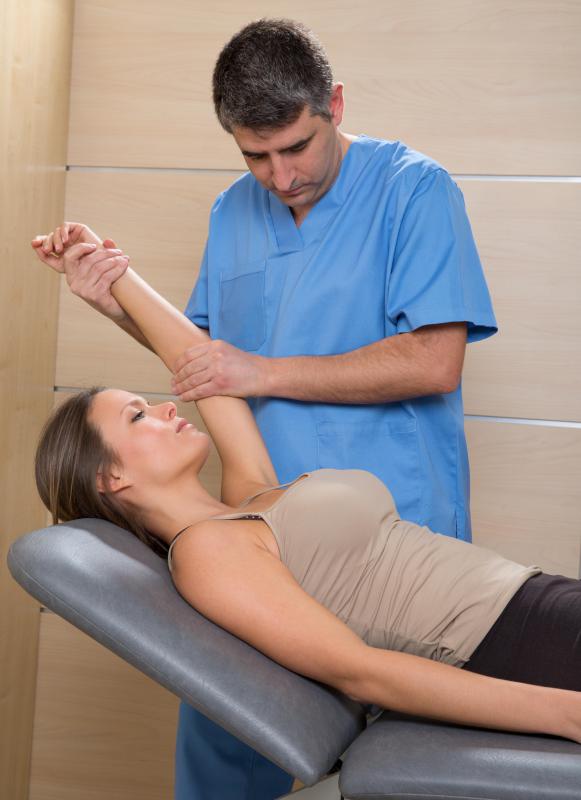At WiseGEEK, we're committed to delivering accurate, trustworthy information. Our expert-authored content is rigorously fact-checked and sourced from credible authorities. Discover how we uphold the highest standards in providing you with reliable knowledge.
How do I Become a Therapeutic Recreation Specialist?
There are four steps required to become a therapeutic recreation specialist: post-secondary training, gain work experience, complete the job interview process, and work as a therapeutic recreation specialist. A therapeutic recreation specialist works with people who have a developmental disability or are recovering from a sudden illness or injury. Through the use of recreational activities, the therapist can help clients strengthen muscles, improve coordination, and learn new skills.
People who are interested in the rehabilitation sciences, are patient, and enjoy helping people find this type of work rewarding. Once you become a therapeutic recreation specialist, it is important to realize that almost all the initiative will be provided by you. In many cases, the patient or client is unable to determine a course of action and implement it. People who gain their energy from others risk burn-out after several years in this role.

The primary requirement to become a therapeutic recreation specialist is to complete a post-secondary education program. This type of program is available from a wide range of community and career colleges. Look for schools associated with a rehabilitation center. The opportunity for job placements, volunteer roles, and guest lectures increases if the center is located nearby.

Related work experience is usually obtained through a job placement program. The best programs to become a therapeutic recreation specialist have formal internship or cooperative learning terms. This type of work is usually scheduled during the standard work day, but may include weekends, depending on resource availability.
When applying for a job as a therapeutic recreation specialist, proofread your resume and cover letter, double checking for any grammar or spelling mistakes. The employer usually has a standard list of questions and is looking for complete, concise responses. Keep in mind that everything you say will be written down and reviewed. Think about your answers, stay calm, and answer the question that was asked.

In your first job as a therapeutic recreation specialist, the tasks assigned are usually quite basic and routine. This is an opportunity to become accustomed to the work environment, discover where materials and supplies are stored, as well as the internal procedures. Take the time to observe the activities of your colleagues and supervisors. After five to ten years, many people want to advance their careers into supervisory or management roles. In many organizations, additional academic credentials are required. This may include management courses, certificates, or specialist certificates in therapeutic recreation.
AS FEATURED ON:
AS FEATURED ON:













Discuss this Article
Post your comments